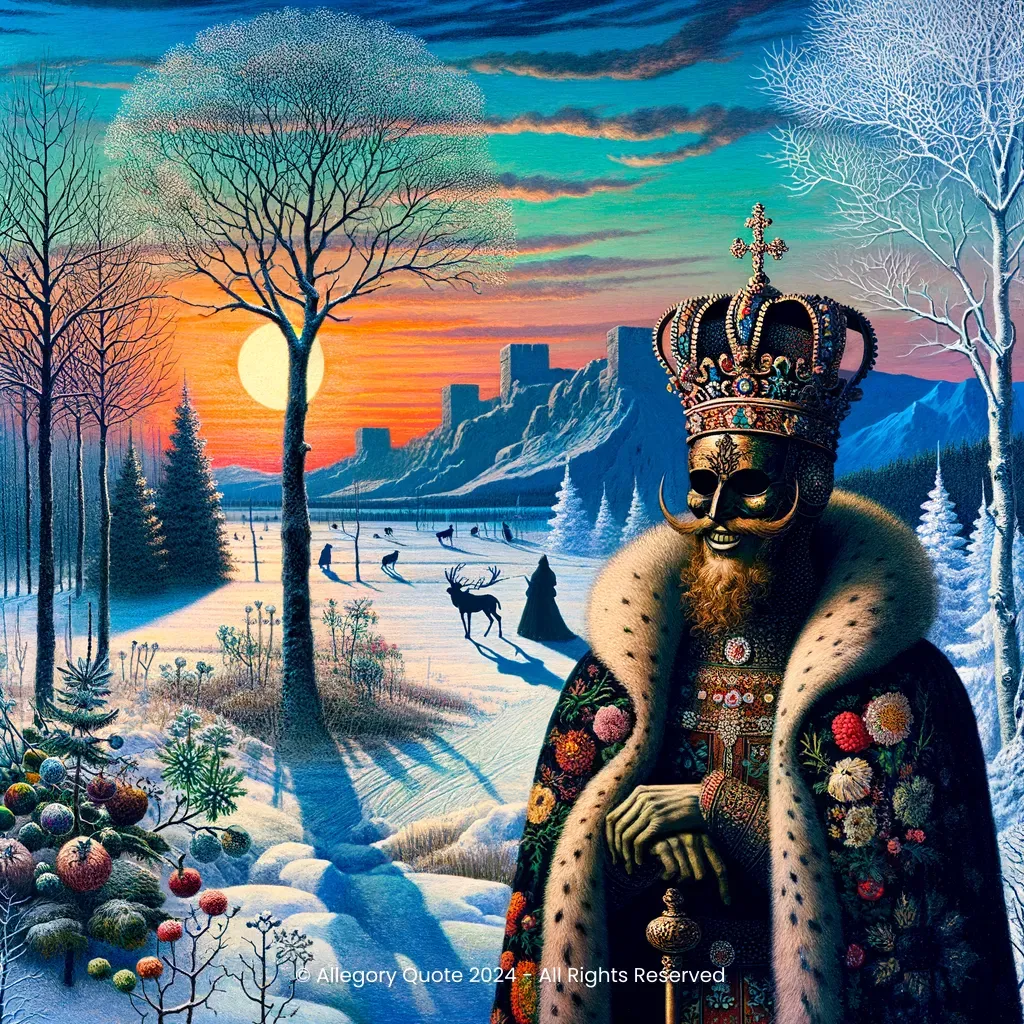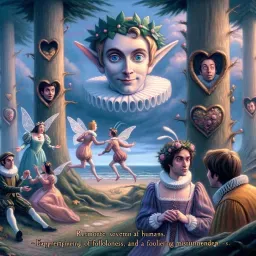Now is the winter of our discontent

0
0
0
0
- Meaning
- The phrase "Now is the winter of our discontent" metaphorically refers to a period of unhappiness or trouble. In the play, Richard uses it to mean that the period of discontent is coming to an end because his family, the House of York, has won recent battles and claimed the throne of England. However, Richard's own intentions are deceitful, casting a shadow over the apparent optimism.
- Allegory
- The cold, bleak winter landscape beginning to thaw symbolizes the end of difficult times. The regal figure dressed in shadows represents Richard Gloucester, whose deceitful nature casts doubt on the optimism suggested by budding trees. The first rays of sunshine indicate approaching relief, but the lurking shadows remind us of hidden threats, encapsulating the phrase’s essence of guarded hope amidst malevolence.
- Applicability
- The meaning of the phrase can be applied to personal life to signify that a time of suffering or trouble is about to end, or could be interpreted ironically to suggest that tough times are being hidden by false appearances. It serves as both a caution against deceit and a reminder that difficult periods will pass.
- Impact
- The phrase has had a significant cultural impact, often quoted to describe turbulent times in politics, economics, and personal lives. It has become a literary touchstone for expressing the end of hardship or the presence of hidden turmoil.
- Historical Context
- "Richard III" was written during the late 16th century, at a time when England was under the rule of Elizabeth I. It was a politically charged period following the Wars of the Roses, a series of dynastic conflicts. The phrase reflects the tumult and eventual establishment of relative peace during that historical context.
- Criticisms
- Some criticisms of the phrase center on its use out of context. In Shakespeare's play, it's laden with irony, as Richard's ambitions and forthcoming actions are anything but positive. Misuse in modern times can strip it of its original complexity and intent.
- Variations
- There are variations in the interpretation of this phrase, especially across different cultures. While Western interpretations might focus on political or personal turmoils, other cultures might see it through a more philosophical lens, emphasizing cyclical patterns in life.
-

The golden age is before us, not behind us.
-

This above all: to thine own self be true.
-

Et tu, Brute?
-

The lady doth protest too much, methinks.
-

Good night, good night! Parting is such sweet sorrow, that I shall say good night till it be morrow.
-

Parting is such sweet sorrow.
-

A little more than kin, and less than kind.
-

What's in a name? That which we call a rose by any other name would smell as sweet.
-

All that glisters is not gold.
-

If music be the food of love, play on.
-

Lord, what fools these mortals be!
-

All the world's a stage, and all the men and women merely players.
No Comments